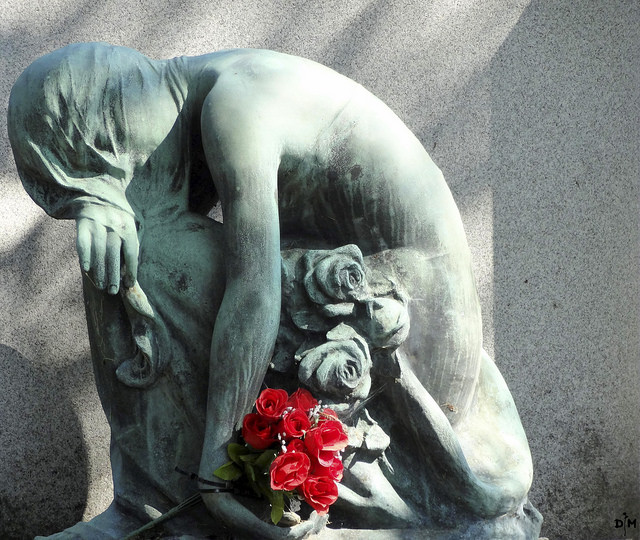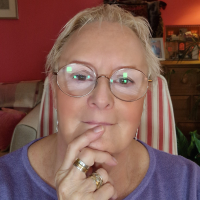
“Dear Therapist in my Pocket, how can I be happy when I feel guilty all the time that there is so much poverty and suffering in the world?”
Some messages ping into my inbox with more force than others; I’d swear the sound they make is louder. This one made me look up from my tea and toast and take notice.
The double bind was so clear. Because it is a double bind, isn’t it? Where are you supposed to go if you have this going on? There won’t be a single one of us, I suspect, who hasn’t felt the weight and burden and responsibility of this dilemma sometime or another.
It’s a guaranteed happiness crumple button, isn’t it?
Many of us learned it really young: “Why have you left that on your plate? You should be grateful! There are people starving who’d give anything to eat that!”
That’s what a double bind is, by the way. Let’s think this one out.
What were you supposed to do? You were a child. You couldn’t get that food you’d left on the side of your plate to those who needed it. How was it wrong to not like something? Or to be full and not have room for more? How was your going without it going to help someone else? So then, did eating it make you grateful and not eating make you ungrateful?
Does that mean eating what you like is greedy? That things shouldn’t be enjoyed if everyone doesn’t have them? Are treats bad? We could go on, but you get the idea.
And, while this question that’s just arrived on the screen in front of me may not immediately appear to come from that same double bind, I can assure you that it does. And it’s just as impossible to find your way out of it. Certainly from that perspective.
How about we find an alternative perspective? One that will actually help us? And everyone else too? It involves looking at the bigger picture. There always is one. We just have to think in a different way.
Shall we give it a go?
(Oh, and by the way, that comment about leaving food on your plate wasn’t clean. It was full of stuff you couldn’t even begin to unpick as a child. But trust me on this, whoever said it to you had some mighty big stuff of their own going on. You felt a blast hit you when they said it? That was theirs, not yours. Let it go.)
Let’s start with the possibility that we’re not victims at all. Ever. Even when the world looks on and decides that we are. First, how does the world know that we’re a victim, just looking on from the outside? Second, how does the world know what our journey is or where it is going to take us? Third, what if we’re actually far more in charge and resilient than it might appear to someone else? And fourth, what if the situation was about the overwhelming sense of compassion the world feels as it witnesses the suffering of another in the first place?
If any of that leaves you feeling indignant, or like I’ve said something outrageous, stay with it. Let’s keep talking. You’re having the right reaction—the one that you need. And if it’s making sense, that’s great too.
See, so much of this hinges on what this is all about in the first place. On whether everything’s just random, or whether there’s purpose and meaning in all that happens. And also on whether we’re looking at it all through human eyes that have forgotten who we really are, or through knowing eyes that are seeing exactly who we are and remembering exactly what’s going on. The higher perspective, if you like.
Once we know—because the amnesia has lifted and we’ve remembered—that we’re all part of an infinite, eternal and constantly expanding web of loving conscious energy (the leading edge of which is choosing to incarnate in this time/space reality for a reason) things start to feel a bit different. If you then add in that this loving consciousness expands through the contrast between what it is to be fully conscious of our divine nature and what it is to experience being fully human, then you begin to get a little closer to understanding the way life can feel from our human perspective, and why it’s meant to feel that way.
How else does a loving consciousness expand in compassion and wisdom other than through experiencing such contrast?
Think about that. Would we ever fully understand gratitude or appreciation if we hadn’t known loss or lack? Would we ever really appreciate the beauty of kindness and generosity if we didn’t carry the awareness of what it is to know cruelty or selfishness? How do we even know to feel true compassion for others in trouble or pain without appreciate the contrast involved? Why do those things matter to us and move us so much?
And just look at the growth that always comes out of experiencing pain or fear or loss or lack. Both in ourselves when we go through those things personally, but also in those who look on, or who walk beside us and keep us company. And the love and opening up to compassion and appreciation that also happens during those wonderful times of joy and intimacy and connection as we share or look on. The one heart beating as many individual hearts for a time, yet never ceasing to remain the one heart throughout.
And don’t we then have to stand in absolute awe at what some of the bravest—and the most loving and generous—hearts have chosen to experience in order to challenge others to find the gift of compassion and understanding?
Only the bravest souls. There are no victims here.
Do you begin to see the opportunity? The adventure? The gift? And doesn’t your heart swell and expand in love and appreciation and compassion at the choices each and every one of us has made in coming to live these lives so full of meaning and purpose?
And can you see how to feel guilty is actually to miss the point? That to feel guilty is to fail to honour the gift? That a more appropriate response is compassion and love and awe?
And if we’re not quite there yet, do you see how that’s okay too? That we’re simply on our journey, and that everything is exactly as it’s supposed to be? Always?
Don’t you just have to love the way this all works.
~
Relephant Read:
How Life gets Better when We Understand why We’re Not Really a Victim.
~
Author: Janny Juddly
Editor: Toby Israel
Image: Flickr
~


 Share on bsky
Share on bsky




Read 17 comments and reply